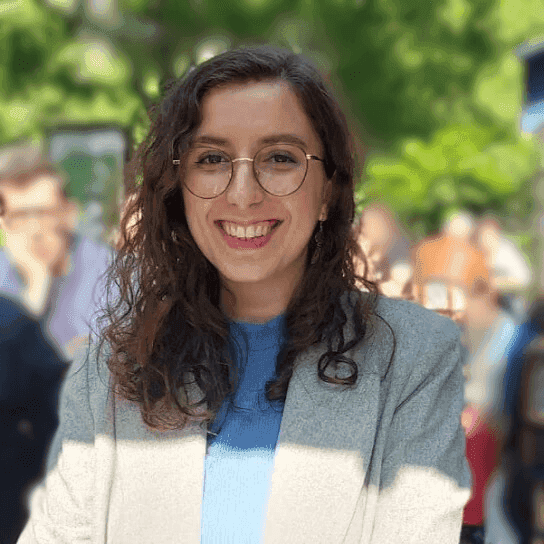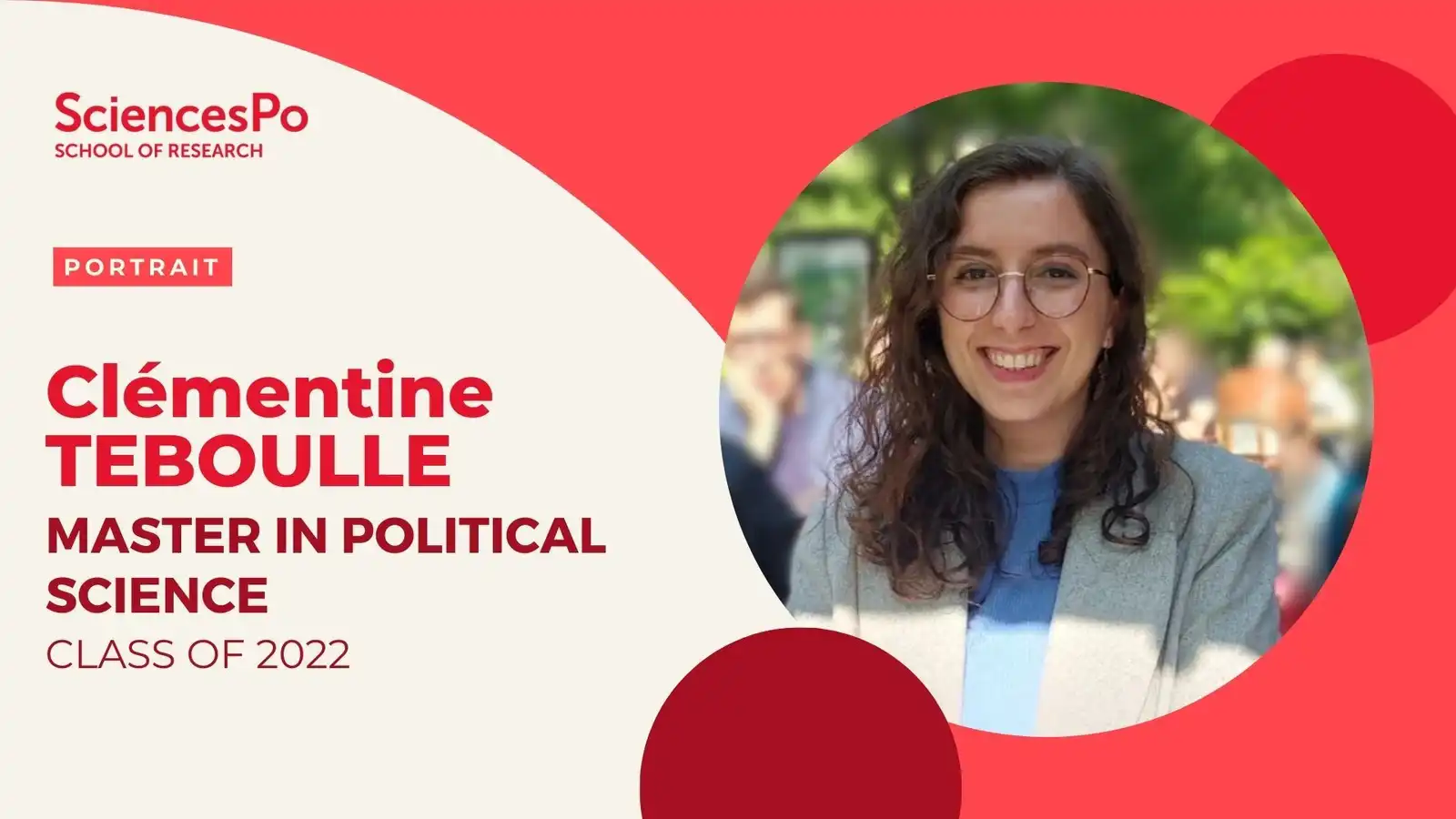Home>Clémentine TEBOULLE, Master in political science (class of 2022)
10.01.2025
Clémentine TEBOULLE, Master in political science (class of 2022)
CAN YOU TELL US ABOUT YOUR ACADEMIC BACKGROUND?
After a baccalauréat in economics and social sciences, I joined Sciences Po's Paris campus, where I had the opportunity to do an Erasmus exchange at the University of Granada in Spain. At these institutions, I discovered the diversity of approaches in the social sciences, depending on the academic and cultural context. Taking part in courses - particularly in English - as part of my bachelor's degree also made me more aware of gender studies, a perspective that influenced my choice of subject for my dissertation. I therefore decided to do a Master's degree in political science and defended my dissertation in September 2022 under the supervision of Hélène Le Bail and Luis Martinez.
WHAT SPARKED YOUR INTEREST IN THE SOCIAL SCIENCES?
I developed a particular interest in sociology and political science at lycée, in the course I followed. I was fascinated by economics and social sciences classes, and I was also lucky enough to take part in the concours général des lycées in this subject. It was impressive, but also a real chance to step outside the baccalauréat framework and explore a sociology subject. I think that's when I discovered the research profession and started to take an interest in it, although I wasn't really planning to do a master's degree at the time.
WHAT WAS THE LESSON THAT IMPRESSED YOU MOST?
The qualitative methods courses taught by Sandrine Revet and Nadège Ragaru in Master 1 and Hélène Le Bail in Master 2 had a big impact on me and gave me solid methodological tools for the future. I remember that we set up a collective survey in the middle of a pandemic, on a subject that we had to choose together (so quite far removed from my initial research interests). This helped me to open up to other subjects and to consider strategies for adapting to the hazards and unforeseen events affecting fieldwork, an intellectual flexibility that is still invaluable today as a doctoral student. These courses also gave me the opportunity to take an in-depth interest in the methodologies, particularly ethnography, that I now use in my research.
WHAT IS YOUR CURRENT POSITION?
In September 2024 I began a teaching assistantship at the Faculté ouverte de politique économique et sociale (FOPES) at the Université catholique de Louvain in Belgium, where I am doing my doctorate. This thesis is supervised by Florence Degavre from the Centre interdisciplinaire de recherche travail, Etat et Société (CIRTES) at UCLouvain and Natacha Chetcuti-Osorovitz from the Laboratoire de Changement Social et Politique (LCSP) at Université Paris Cité. It focuses on the making of judgements in the judicial treatment of intimate partner homicides, combining sociology and gender studies.
In practical terms, I divide my time between teaching and doctoral research, which gives me a certain balance. My faculty's project, which is to train and support adults returning to study, also makes this part of my job very stimulating from an intellectual and human point of view.
WHAT WERE THE MAIN STAGES IN THE DEVELOPMENT OF YOUR CAREER PLAN?
I don't have a linear career path, which has enabled me to draw on different and complementary experiences to build my career plan. At the end of my Master's degree in research and after several work placements, I was hesitant about where I wanted to go. So I worked in several sectors before turning to academic research.
First I was a research assistant on two projects, one of which was METACHILD (Promotion of metacognition as a lever for reducing educational inequalities in pre-school and school-age children), before working in the reception and integration department of the Office français de l'immigration et de l'intégration as a partnership officer. Finally, I joined the Aladin Project as programme coordinator.
In October 2023, I changed direction and joined the Centre de données sociopolitiques (CDSP), a research support unit under the joint supervision of Sciences Po and the CNRS, with the task of monitoring the panel for the ‘Your Life in Paris’ survey, the French component of the European Pilot Application in Urban Landscapes (PAUL) project. For a year, as part of the ‘Data Production’ team and under the supervision of the project's scientific manager Nicolas Sauger, my role was to organise and carry out the collection, preparation and processing of data in coordination with the European partners. In addition to these part-time duties, I taught my first courses in the Welcome Programme in Paris and in Introduction to Political Science on the Menton campus.
It was during this last year that I consolidated my career plan and was able to apply for a doctoral contract.

« Whether it was constructing the doctoral project or preparing the data collected using statistical software, I was able to apply what I had learnt during the Master's course to my subsequent experiences, which consolidated my ability to complete the thesis. »
Clémentine TEBOULLE
Teaching assistant and doctoral student, Masters in Political Science (class of 2022)
HOW HAS YOUR TRAINING CONTRIBUTED TO YOUR CURRENT POSITION?
The research training was very comprehensive, enabling me to use a variety of methodological skills to conduct a social science survey. Whether it was constructing the doctoral project or preparing the data collected using statistical software, I was able to apply what I had learnt during the Master's course to my subsequent experiences, which consolidated my ability to complete the thesis successfully.
WOULD YOU HAVE ANY ADVICE FOR A STUDENT WHO WANTS TO MOVE INTO THE SECTOR IN WHICH YOU WORK TODAY?
I would say that there is no ‘one’ good linear route to a doctorate. On the contrary, the different experiences and stages you go through before turning to research and teaching are very enriching for the thesis and what it contains in terms of methodology and epistemology. My advice would therefore be not to limit yourself to your favourite discipline or to studies in the strict sense of the term, but to be open to complementary professional perspectives in order to understand what suits you best.
Useful links
- About the master's degree in political science
- About the doctorate in political science
- See all portraits of graduates
